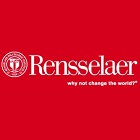Rensselaer's Nuclear Engineering program is home to over 130 undergraduate and graduate students. With focuses on reactor physics and design, thermal-hydraulics, health physics, and reactor materials, the Nuclear Engineering program offers a diverse set of courses to fit almost any curriculum. Additionally, the program includes a competitive Senior Design Program, maintains two world-class research facilities, and is home to a highly active student section of the American Nuclear Society. The NE Department was officially formed in 1960 and is one of the oldest such programs in the U.S. The construction of the accelerator facility was completed in 1961 and the facility would soon be named after Professor Gaerttner who was instrumental in establishing NE at Rensselaer and who served as NE's first departmental head. Within a few years, the NE Department at Rensselaer awarded its first PhD degrees and then B.S. degrees.
At Rensselaer, concentrations are available in fission reactor physics, reactor engineering, health physics, thermal-hydraulics, reliability and safety, and reactor materials. Boasting unique and state-of-the-art research facilities, Rensselaer students have access to a critical reactor, a large electron accelerator, and modern computer interfacing technology. With today's need for inexpensive sources of energy, Rensselaer nuclear engineering graduates are in great demand for positions in industry or graduate study. Additionally, there are exciting possibilities in space power propulsion, fusion reactor engineering, medicine, and national defense.
The M.S. degree is perceived to be scholarly or fundamental and is well suited to students who wish to prepare for a professional career and also to measure their ability to pursue a Ph.D. without commitment of extra time beyond that required for an M.S.
Students completing the M.S. degree will write a thesis based on a research topic chosen by the student and a professor who serves as the academic adviser. The topic is chosen based on mutual interests and needs. Course work typically focuses on subjects related to the research topic. The corresponding thesis, independently written by the student as a single author, must be approved by the adviser as well as two additional committee members from the department's faculty (Master's Committee). A thesis defense will be presented to this committee.






